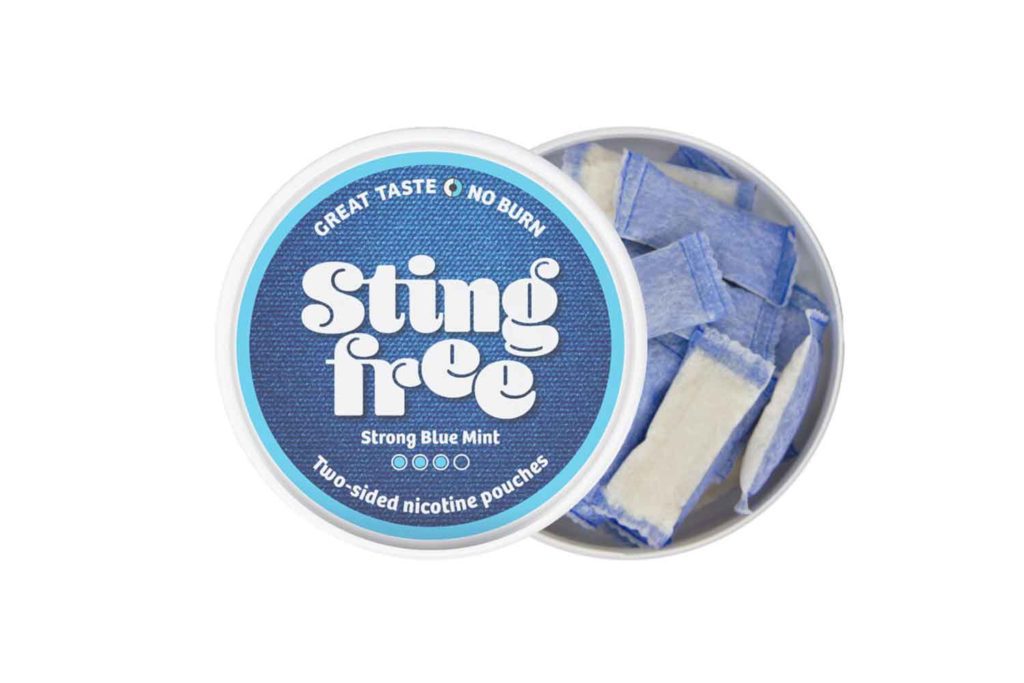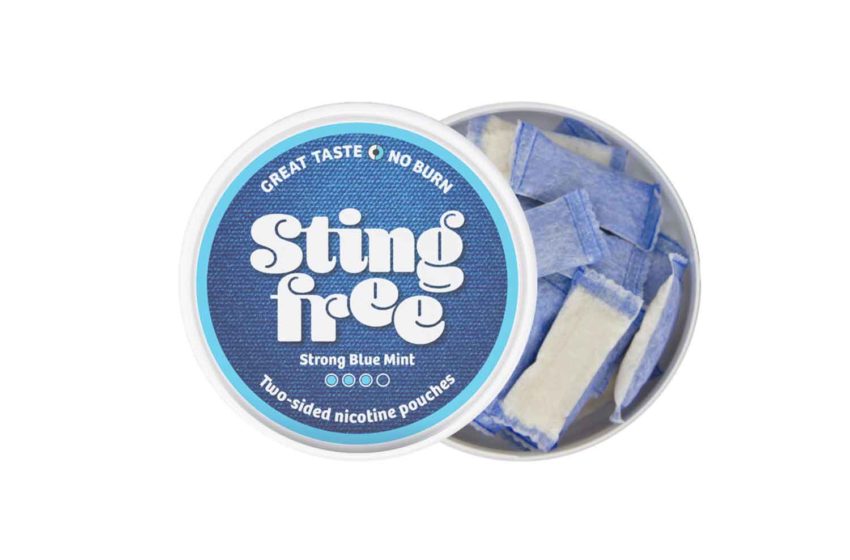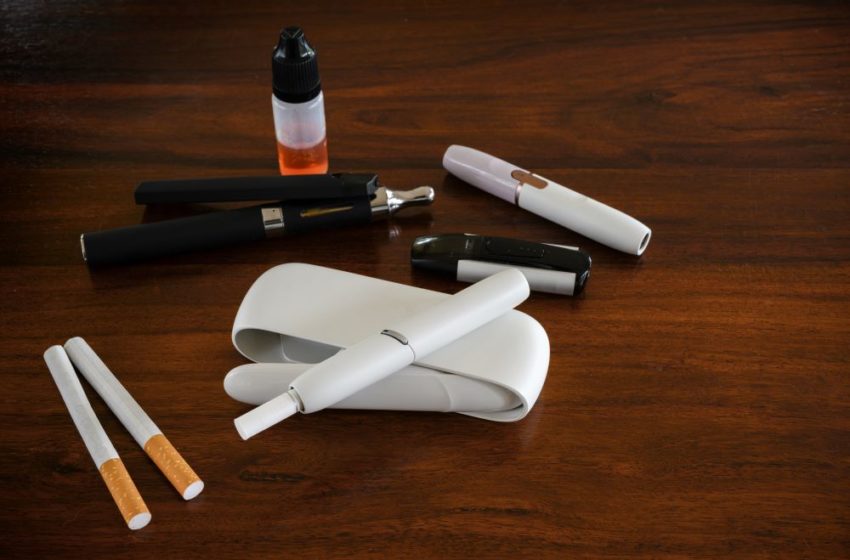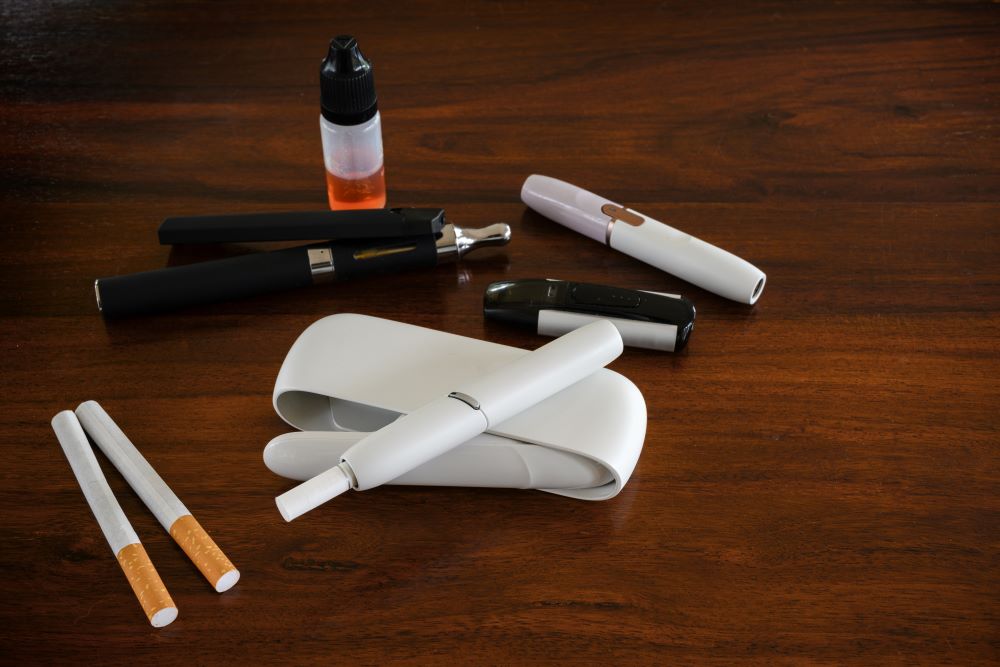
Sting Free modern oral nicotine pouches have been launched in Sweden.
The Stingfree technology reduces the burning sensation and irritation on the gums, which is typical of regular snus and oral nicotine products, according to a press release. Several e-commerce distributors and stores are now selling the first product in an upcoming series of tobacco-free nicotine pouches with different flavors and strengths.
Several studies have shown that many snus users suffer damage to and changes to the gums, especially where the pouches are in direct contact with the gums. The U.S./EU patented Stingfree technology aims to counteract this and the associated burning/irritating sensation by having an impermeable barrier on the gum side of the pouch. A high percentage of snus users dislike when nicotine pouches and snus stings/burns and irritates the gums. This has been established by Sting Free AB in a comprehensive survey in 2022, with responses from over 1,000 Swedish snus users (of which almost 40 percent were women). Of the respondents, 67 percent of the women considered that the burning/stinging sensation, regardless of when it stings, is unpleasant as did 53 percent of the men. Almost 50 percent of the respondents had had oral health problems pointed out by their dentists linked to their use of snus/nicotine pouches.
A recent survey of U.S. females investigated why the use of smokeless tobacco products like nicotine pouches and snus is so much lower among women compared to men. A main factor concluded from the responses was the burning sensation and oral irritation caused by these products, with comments such as “irritation,” “burn,” “hurts my gums,” etc. Other factors were “negative stereotypes about smokeless users,” “deadly misconceptions” that smokeless products are more dangerous than e-cigarettes and smoking and the unfamiliar mode of delivery.
Sting Free AB’s vision is that the Stingfree technology will become a new industry standard for nicotine pouches and traditional smokeless tobacco products like snus and that customers in the future will be asked the question, “Regular or sting-free?” when they buy such products. The company also hopes that the technology will contribute to more smokers opting out of smoking in favor of significantly less dangerous nicotine pouches.


















